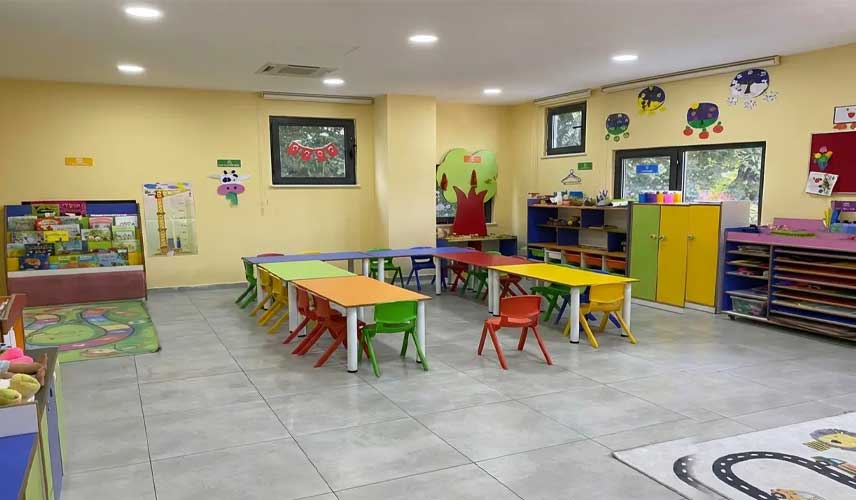
10 Exemplary Behaviors of Successful Children's Parents

There are probably no parents who do not want their child to be a person with a personality, secure, positive, successful in every area of life, and responsible. But like many things in life, this cannot be achieved just by wanting; parents need to make an effort in this regard. We conducted a research on what the parents of successful children do and how they behave towards their children.
1. They regularly assign tasks to their children
Arrange for your child to be responsible for a specific task at home. Depending on the child's age, this could be bringing dishes to the table at dinner, watering flowers, taking out the trash, dusting a certain area, and many more. Children who regularly perform certain tasks at an early age tend to have a higher sense of responsibility and self-confidence.
2. They pay attention to family relationships and ensure that conflicts do not affect the child
Conflicts within the family negatively affect children at different levels. It is even possible for a child to be unhappy and insecure throughout their life due to such issues. If you want to raise a successful child, whether you are married or divorced, you must ensure that your child is not affected by the problems between you, and that they do not witness fights or hear bad things said to each other.
3. They have high but realistic expectations for their children
We will discuss two different aspects of this issue: The expectations of parents from their child are important. According to some scientific studies, families who want their children to enter university, regardless of their income and status, have a large portion of their children successfully entering university, and many of them also achieve high grades. This situation is associated with a psychological finding known as the Expectation Effect or Self-Fulfilling Prophecy. People often begin to behave in a way that meets the expectations of others, especially those they perceive as superior for some reason.
On the other hand, you may have very high dreams for your child, but if these expectations are not at a level they can reach and sometimes stretch, they will struggle a lot and are likely to fail. Or even if they succeed, the excessive effort they put in may lead them to feel tired and exhausted. It is normal to have high expectations regarding education; all parents want their children to receive a good education, to be successful students, and to build a career. However, you should also ensure that your expectations are attainable. Every child's capacity, interests, and abilities are different. The parents of successful children take these nuances into account as well.
4. They value their children's social skills development
If you support your child to communicate with others, empathize, and help people while they are still in preschool age, they will benefit from this when they grow up and become a young adult, for example, while studying at university, making it easier for them to find a job. Research shows this.
5. They also give their children the opportunity to fail
People learn more from failure than from success. Therefore, do not always help your child in everything. Let them try things they might not be able to do or do well from time to time. In such situations, do not make mocking remarks, do not say, "Didn’t I tell you?" Managing such situations correctly develops your child's abilities and character, helping them to become a resilient person.
6. They teach their children math from a young age
Starting school with knowledge of numbers, their order, and basic math operations like addition and subtraction positively affects a child's future success in math and reading.
7. They prioritize spending quality time with their children
One of the common characteristics of successful children is that they have spent as much quality time as possible with their families, especially their mothers, between the ages of 3 and 11. What can you do in this regard? Go on nature trips as a family, participate in cultural tours, do household chores together, solve puzzles, read books, create handmade items... there are so many alternatives.
8. They pay attention to staying away from stress
This does not mean that they are not upset about anything or that they have no problems. The parents of successful children do not dwell on everything and do not live in constant anxiety. Reflect on yourself in this regard; are you someone who turns small things into big problems, who is always anxious and troubled? This is a harmful situation for your own mental state and health, and you need to overcome it. Your child will also be negatively affected by your anxious state. Do both of you a favor and try to be someone who looks at life and events more positively and does not worry about things.
9. They are not overly protective and controlling
Doing everything you can to protect your child from dangers, accidents, and bad people is one thing, but following every step they take to protect them and not allowing them to take initiative in any matter is another. If you behave this way, you will negatively affect their development and level of success. You should trust your child and allow them to do some things on their own.
10. They are not authoritarian or permissive, but fall into the authoritative parenting category
According to a study published by the University of California in the 1960s, there are fundamentally three styles of parenting. Permissive parents are overly indulgent, do not object to almost anything their children do, and avoid punishment. Authoritarian parents are overly strict, trying to shape and control their children within certain behavioral patterns. Authoritative parents have a measured authority; their children respect their authority and obey, but do not live constantly suppressed and restricted. This third model is considered the ideal parenting style.
Child Development and Education Other Content in the Category

Child Development and Education
Ways to Develop Fine and Gross Motor Skills in Children

Child Development and Education
First Day at Kindergarten: 12 Tips to Ease the Transition

Child Development and Education
6 Tips for Success

Child Development and Education
8 Reasons for Attention Difficulties in Children

Child Development and Education
Problems Related to Homework and Solutions

Child Development and Education
15 Life Skills Your Teen Should Acquire

Child Development and Education
35 Positive Messages Your Child Needs to Hear

Child Development and Education
10 Characteristics of Good Enough Parents

Child Development and Education
Child Development: The First 5 Years

Child Development and Education
7 Things You Need to Do to Raise a Well-Rounded Child

Child Development and Education
14 Effective Methods to Improve Children's School Success

Child Development and Education
8 Tips for Positive Parenting

Child Development and Education
10 Ways to Communicate Well with Children

Child Development and Education
How Does Changing Schools Affect Children?

Child Development and Education
